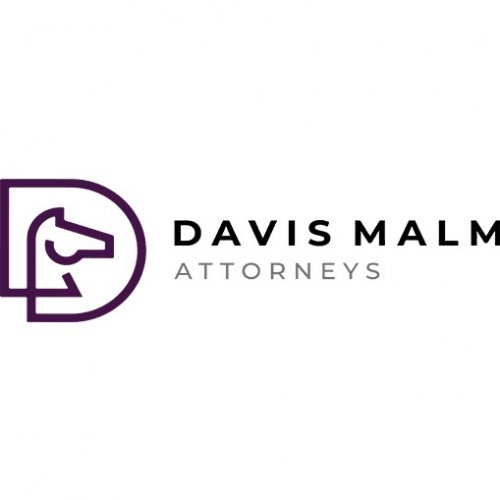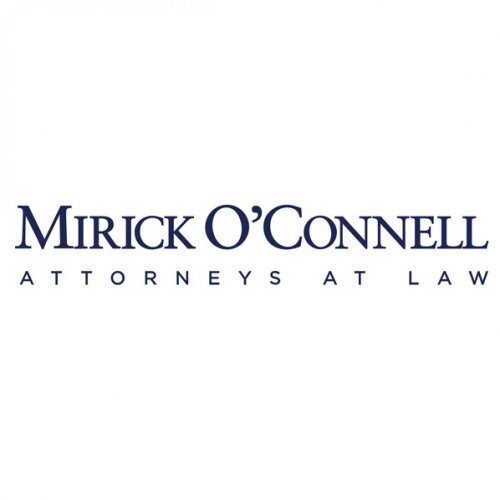Best Creditor Lawyers in Massachusetts
Share your needs with us, get contacted by law firms.
Free. Takes 2 min.
Or refine your search by selecting a city:
List of the best lawyers in Massachusetts, United States
About Creditor Law in Massachusetts, United States
Creditor law in Massachusetts governs the rights and obligations of individuals and entities to whom money is owed, often as a result of loans, credit agreements, contracts, or court judgments. Creditors can include banks, credit card companies, utility providers, landlords, businesses, or even individuals. In Massachusetts, the law outlines the procedures for collecting debts, protects certain debtor rights, and addresses the fair treatment of all parties involved. Understanding creditor law is vital for both creditors seeking repayment and debtors defending their legal rights.
Why You May Need a Lawyer
There are many situations in which consulting a lawyer experienced in creditor issues can be beneficial. For creditors, legal assistance is often necessary when attempting to collect on unpaid debts, enforce court judgments, or navigate bankruptcy proceedings involving a debtor. Debtors may seek legal help to defend against unjust claims, request a payment plan, or address harassment from debt collectors. Additional scenarios include negotiating settlement agreements, handling secured and unsecured debts, foreclosing on property, or ensuring compliance with state and federal consumer protection laws.
Local Laws Overview
Massachusetts has several key laws relevant to creditor matters. Collection activities must comply with both federal statutes, like the Fair Debt Collection Practices Act, and Massachusetts regulations such as the Massachusetts Consumer Protection Act and specific debt collection regulations under 940 CMR 7.00. The state imposes strict rules on communication frequency, timing, and methods that creditors and collection agencies may use. Wage garnishment, repossession, foreclosure, and exemptions for personal property are also governed by state law. There are legal processes for obtaining court judgments, enforcing liens, and handling bankruptcies. Engaging in unlawful or deceptive debt collection practices can result in penalties and civil liability for creditors.
Frequently Asked Questions
What is the statute of limitations for collecting debts in Massachusetts?
Most consumer debts in Massachusetts have a statute of limitations of six years, meaning creditors generally have six years from the date of default to file a lawsuit to recover the debt.
Can a creditor garnish my wages in Massachusetts?
Yes, but only after obtaining a court judgment against you. Additionally, state and federal laws limit the amount that can be garnished from your wages.
Are there limits on how creditors can contact me?
Yes. Massachusetts law restricts debt collectors from calling more than twice in a seven-day period and limits calls to certain hours. The law also prohibits harassment and deceit.
Can I dispute a debt that I do not owe?
Absolutely. You have the right to dispute a debt in writing. The creditor or collection agency must provide verification of the debt in response.
What property is exempt from creditors in Massachusetts?
Certain property, such as some home equity, necessary clothing, furniture, and tools of the trade, may be partially or fully exempt from seizure during debt collection.
How can a creditor obtain a court judgment?
A creditor must file a lawsuit in the appropriate court. If the court finds in favor of the creditor, a judgment will be entered, permitting further collection actions like wage garnishment or liens.
What is the process for collecting a judgment?
After obtaining a court judgment, the creditor may pursue wage garnishment, bank account attachment, or lien on property, all within the boundaries of Massachusetts law.
Can a creditor repossess my car in Massachusetts?
If your car serves as collateral for a loan and you default, the lender may repossess the vehicle, but must follow strict legal requirements for notice and sale of the car.
What are my rights if I am being harassed by a creditor?
You are protected from harassment under both federal and Massachusetts law. You may file a complaint with state regulators or seek legal action if a creditor violates these laws.
How does bankruptcy affect my creditors?
Filing for bankruptcy generally triggers an automatic stay, which immediately stops creditors from collecting most types of debts until the bankruptcy is resolved.
Additional Resources
- Massachusetts Attorney General’s Office Consumer Advocacy & Response Division - Massachusetts Division of Banks - Legal Services Center of Harvard Law School’s Consumer Protection Clinic - National Consumer Law Center (NCLC) - Boston office - United States Bankruptcy Court, District of Massachusetts - MassLegalHelp (consumer debt resources and guides)
Next Steps
If you are dealing with creditor issues or have questions about your rights and responsibilities, consider the following steps. First, gather all relevant documents, contracts, and communications related to your case. Clearly identify the nature of your issue, such as collection efforts, court actions, or potential lawsuits. Reach out to a qualified Massachusetts attorney who specializes in creditor law to discuss your situation and receive guidance tailored to your needs. If you believe a creditor or collector has violated the law, consider contacting the Massachusetts Attorney General’s Office or another relevant agency. Legal aid organizations may also offer free or low-cost advice if you qualify. Acting promptly can help protect your interests and achieve the best possible outcome.
Lawzana helps you find the best lawyers and law firms in Massachusetts through a curated and pre-screened list of qualified legal professionals. Our platform offers rankings and detailed profiles of attorneys and law firms, allowing you to compare based on practice areas, including Creditor, experience, and client feedback.
Each profile includes a description of the firm's areas of practice, client reviews, team members and partners, year of establishment, spoken languages, office locations, contact information, social media presence, and any published articles or resources. Most firms on our platform speak English and are experienced in both local and international legal matters.
Get a quote from top-rated law firms in Massachusetts, United States — quickly, securely, and without unnecessary hassle.
Disclaimer:
The information provided on this page is for general informational purposes only and does not constitute legal advice. While we strive to ensure the accuracy and relevance of the content, legal information may change over time, and interpretations of the law can vary. You should always consult with a qualified legal professional for advice specific to your situation.
We disclaim all liability for actions taken or not taken based on the content of this page. If you believe any information is incorrect or outdated, please contact us, and we will review and update it where appropriate.
Browse creditor law firms by city in Massachusetts
Refine your search by selecting a city.











